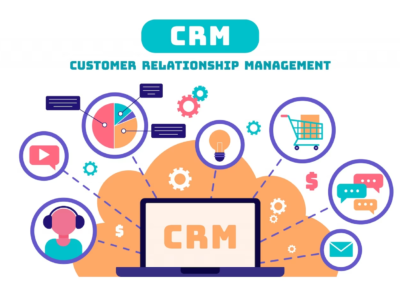
Customer data platform vs CRM: pros, cons, and recommendations
Choosing the right customer data platform (CDP) or CRM can be difficult. There are many different options available, and each one has its own set of pros and cons. In this article, we’ll compare and contrast CDPs and CRMs, and offer recommendations on which option is right for you.
1. Pros of CDP
1.1 Utilization of First-Party Data

This type of information is the most valuable in terms of marketing because it is collected directly from customers and contains detailed information about real customers. Furthermore, because the data is provided by your customers, you have complete control and access to it. As a result, CDP resolves the privacy issues that exist in other platforms.
1.2 Easy Integration
You can easily integrate a CDP with other platforms without the hassle of creating customized integrations as with DW.
1.3 Marketers Stay in Control
Marketing professionals are not required to use the assistance of IT technicians when ‘creating’ the database, so they have complete, uninterrupted control over their work.
1.4 ‘Single Customer View’
Data collected from various sources and channels are combined into a single record, providing you with a comprehensive view of the customer journey. When combined with first-party data retrieval, this results in a comprehensive single customer view.’
2. Cons of CDP
2.1 Restricted Data Sets
Because a CDP works with first-party data by default, you may discover that your results aren’t entirely ‘data-driven’ and lack broad data ranges. This may limit the effectiveness of your subsequent marketing campaign.
Smartosc solutions : BACKBASE DIGITAL BANKING, BUY NOW PAY LATER, LOS, CDP, EKYC, DIGITAL ONBOARDING
2.2 Unstructured Data
When working with unstructured data, you may run into problems because uploading, using, and visualizing this type of data can be difficult. A CDP is distinguished from a DW by its ease of use and representation of unstructured data.
3. Pros of CRM

3.1 Improved Reporting and Analytic Processes
Your company’s CRM system stores all of the important and detailed customer information and makes it accessible from a single location, allowing that data to be used as a strategic asset.
Integrating CRM data with other external plugins and tools can help to broaden the scope of the data collected. Extensive, accurate, and relevant data can be used to conduct productive and effective analyses, leading to the creation of comprehensive and useful reports and, ultimately, the implementation of better strategic decisions.
3.2 Delivering Better Customer Services
A CRM database containing all detailed, current, and historical information about your customers, their purchasing habits, preferences, feedback, and other relevant facts will assist your customer service department in tending to and resolving customer queries and issues more quickly and to the best of their abilities.
3.3 Efficiency
In several ways, this system promotes efficiency. To begin with, it automates the majority of your initial and some of your later tasks: report distribution, data collection, lead generation, and so on. Second, it creates an organized, centralized hub for all aggregated data, allowing easy access to various teams from various departments.
Third, centralization allows everyone in the organization to stay up to date on the company’s current events delivery made, deals signed, feedback on new services/products, and so on. All of these things save the company both time and money.
4. Cons of CRM
4.1 Privacy Issues
Working with this system entails gaining access to your customer’s personal data, which may necessitate obtaining their consent. Furthermore, many CRM systems use cloud hosting, which can pose a data security risk.
4.2 Limitations
In today’s world, a CRM system cannot function effectively on its own and must be integrated with other marketing platforms (e.g., CDPs) to produce maximum and useful results. In addition to the additional software support required, your company will require a full support team of individuals in order to cover all critical brand-customer interaction areas.
Conclusion
If you are trying to decide whether a customer data platform or CRM is right for your business, consider the pros and cons of each system. customer data platforms offer more robust functionality and integration than CRMs, but they can be more expensive.
CRMs are more affordable and easier to use, but they may not have all the features you need. Ultimately, the best solution for your business will depend on your specific needs and budget. If you need help deciding which system is right for you, our team of experts can advise you on the best course of action. Contact SmartOSC Fintech today to learn more about customer data platforms vs CRMs.


